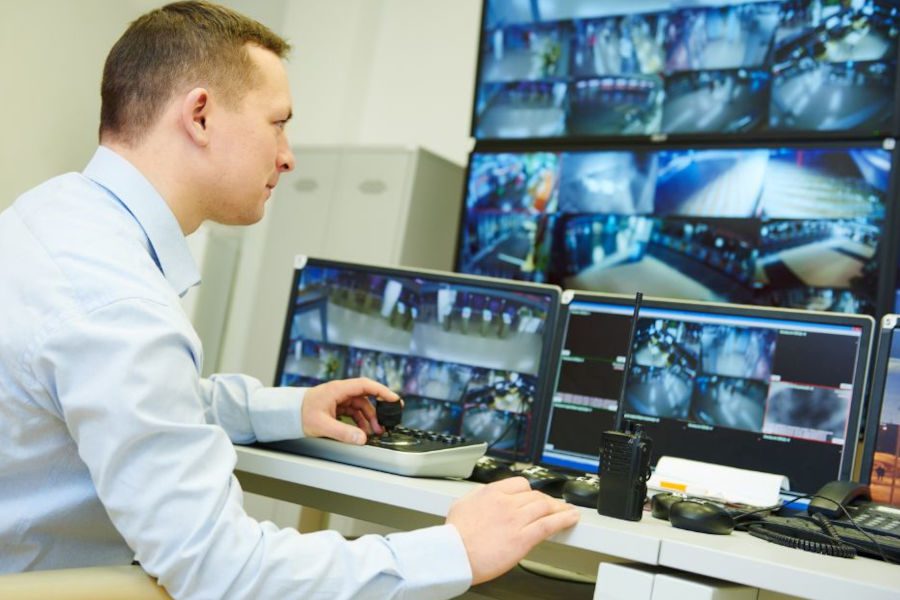In today’s fast-paced business environment, ensuring the safety and security of your premises is paramount. An alarm monitoring system can provide peace of mind, protecting your assets and personnel from potential threats. However, with numerous options available, selecting the right system for your business can be a daunting task. This article aims to guide you through the essential considerations when choosing an alarm monitoring system.
Understanding Alarm Monitoring Systems
Alarm monitoring systems are designed to detect and respond to security breaches, such as unauthorised access or fire hazards. These systems typically consist of sensors, alarms, and a monitoring service that alerts you and the authorities in case of an emergency.
There are two main types of alarm monitoring systems: wired and wireless. Wired systems are often more reliable and less susceptible to interference, while wireless systems offer flexibility and ease of installation. Understanding the differences between these systems can help you make an informed decision based on your business needs.
Types of Alarm Monitoring Systems
Alarm monitoring systems can be categorised into several types, each designed to address specific security concerns. Common types include burglar alarms, fire alarms, and environmental monitoring systems. Each type serves a unique purpose and can be integrated into a comprehensive security solution.
Burglar alarms are designed to detect unauthorised entry into a building. These systems typically use motion detectors, door/window sensors, and glass break detectors to identify potential intrusions. Fire alarms, on the other hand, are equipped with smoke detectors and heat sensors to alert occupants of a fire. Environmental monitoring systems can detect issues such as flooding or temperature fluctuations, ensuring that your business remains safe from various threats.
Key Features to Consider
When evaluating alarm monitoring systems, it is crucial to consider the features that will best suit your business. Not all systems are created equal, and certain functionalities may be more beneficial depending on your specific requirements.
Integration with Existing Systems
One of the most important factors to consider is whether the alarm monitoring system can integrate with your existing security infrastructure. This includes CCTV cameras, access control systems, and other security measures. A cohesive system can provide a more robust security solution, allowing for better monitoring and response capabilities.
Integration can also lead to cost savings, as you may be able to utilise existing equipment rather than investing in new devices. Ensure that the alarm monitoring system you choose is compatible with your current systems to maximise efficiency.
Remote Monitoring Capabilities
In an increasingly digital world, remote monitoring capabilities are essential for modern businesses. Many alarm monitoring systems now offer mobile applications or web-based platforms that allow you to monitor your premises in real-time from anywhere.
Remote monitoring can provide instant alerts and notifications, enabling you to respond quickly to any security incidents. This feature is particularly valuable for businesses with multiple locations or those that operate outside of regular hours.
Scalability
As businesses grow, their security needs may evolve. It is essential to choose an alarm monitoring system that can scale with your business. Look for systems that allow for easy expansion, whether that means adding more sensors, integrating new technologies, or increasing monitoring capabilities.
A scalable system ensures that your security remains effective as your business expands, preventing the need for a complete overhaul of your security infrastructure in the future.
Evaluating Monitoring Services
The effectiveness of an alarm monitoring system is heavily reliant on the monitoring service itself. When selecting a provider, consider their reputation, response times, and the level of support they offer.

Response Times
In the event of an alarm activation, response time is critical. A prompt response can mean the difference between a minor incident and a significant loss. Research the average response times of potential monitoring services and ensure they meet your expectations.
Some providers may offer additional features, such as automated alerts to local authorities or emergency contacts, which can further enhance response times. Understanding the service level agreements (SLAs) of each provider will give you a clearer picture of their commitment to timely responses.
Customer Support
Reliable customer support is essential for any monitoring service. You should have access to knowledgeable representatives who can assist you with any issues or questions that may arise. Look for providers that offer 24/7 support, ensuring that help is available whenever you need it.
Consider reading customer reviews and testimonials to gauge the quality of support provided by different monitoring services. A provider with a strong track record of customer satisfaction is likely to be a more reliable choice.
Cost Considerations
Cost is often a significant factor when choosing an alarm monitoring system. It is essential to balance affordability with the features and services offered. While it may be tempting to opt for the cheapest option, consider the long-term value of investing in a more comprehensive system.
Initial Setup Costs
The initial setup costs can vary significantly between different alarm monitoring systems. Factors that influence these costs include the type of system, the number of sensors required, and any additional features you may wish to include.
It is advisable to obtain quotes from multiple providers to compare costs. Be sure to ask about any hidden fees, such as installation charges or ongoing maintenance costs, to avoid any surprises down the line.
Ongoing Monitoring Fees
In addition to initial setup costs, ongoing monitoring fees are another crucial consideration. These fees can vary based on the level of service provided, the size of your business, and the complexity of your security needs.
When evaluating monitoring fees, consider the value of the services offered. A higher fee may be justified if it includes additional features such as remote monitoring, advanced reporting, or quicker response times. Always weigh the costs against the potential risks and losses associated with inadequate security.
Regulatory Compliance and Standards
Depending on the nature of your business, there may be specific regulations and standards that your alarm monitoring system must comply with. Understanding these requirements is vital to ensure that your business remains compliant and avoids potential penalties.
Industry-Specific Regulations
Different industries may have unique security requirements. For example, businesses in the healthcare sector may need to comply with strict regulations regarding patient data security, while those in finance may have additional requirements related to asset protection. Familiarise yourself with the regulations that apply to your industry to ensure that your alarm monitoring system meets all necessary standards.
Consulting with industry experts or legal advisors can help clarify any compliance issues and ensure that your chosen system adheres to all relevant regulations.
Standards and Certifications
Look for alarm monitoring systems that meet recognised industry standards and certifications. These may include ISO certifications, NSI (National Security Inspectorate) approvals, or other relevant accreditations. A system that adheres to these standards is likely to be more reliable and effective in protecting your business.

Conclusion
Choosing the right alarm monitoring system for your business is a critical decision that requires careful consideration. By understanding the various types of systems, evaluating key features, and assessing monitoring services, businesses can make informed choices that enhance their security.
Cost considerations, regulatory compliance, and the ability to scale with your business are also essential factors in the decision-making process. By taking the time to evaluate all these elements, businesses can select an alarm monitoring system that not only meets their current needs but also adapts to future challenges.
Ultimately, investing in a robust alarm monitoring system is an investment in the safety and security of your business, providing peace of mind and allowing you to focus on what truly matters—growing your enterprise.
Read More: Security alarm response: how fast can help arrive in an emergency?.

